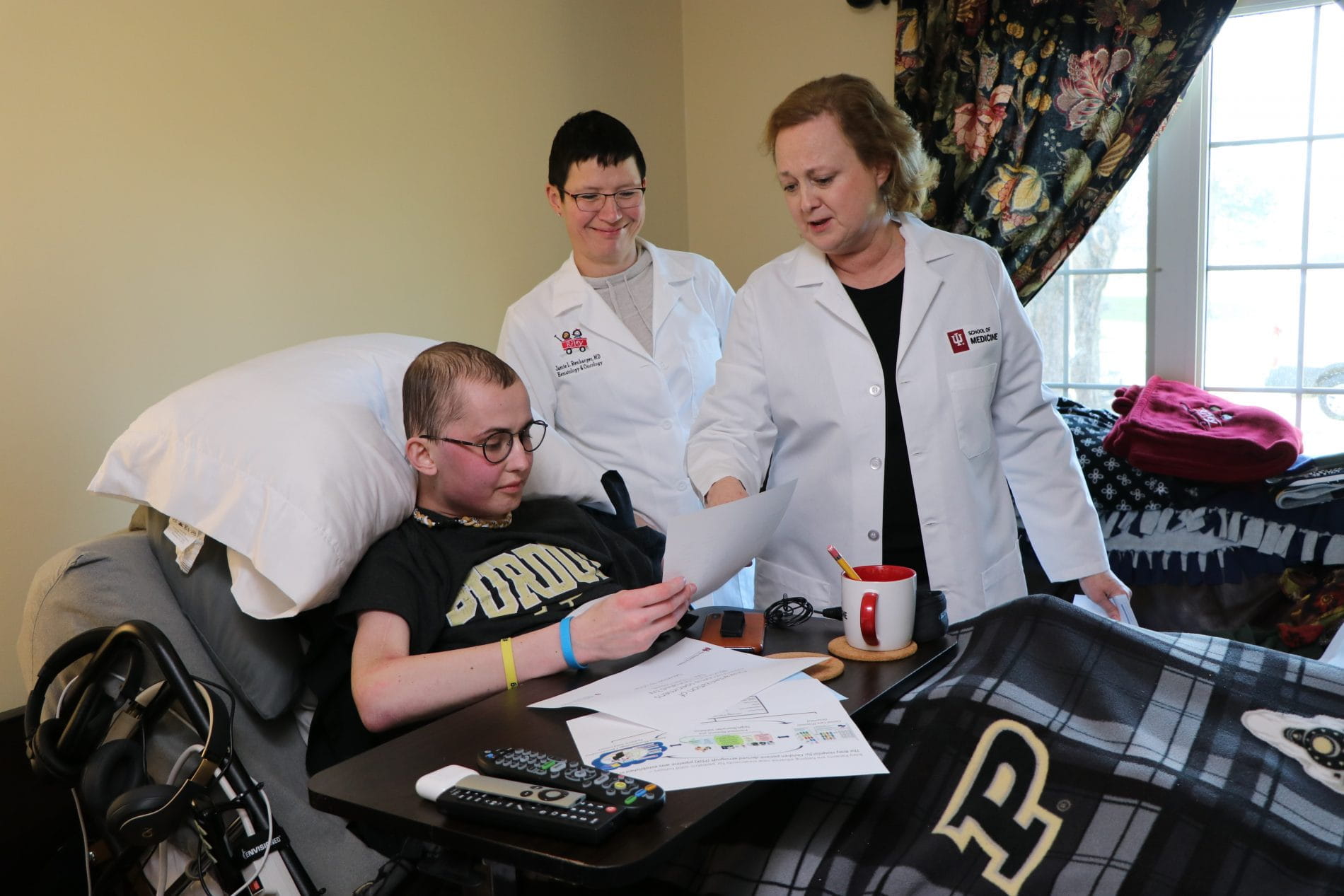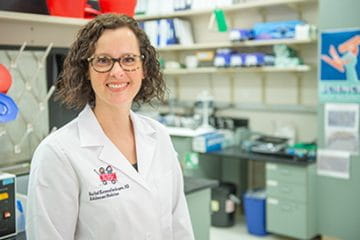The Pediatric Molecular Oncology and Experimental Therapeutics research team is focused on translating the basic science understanding of genes and protein mechanisms into new therapeutic modalities while developing better models for tumor studies and a greater understanding of tumor biology. The group puts emphasis on all types of pediatric cancers and related tumors, including sarcomas (osteosarcoma and rhadbomyosarcoma). Basic and preclinical studies facilitate clinical trials as well as understanding mechanism of the diseases.
Areas of Focus
The current areas of research for the Pediatric Molecular Oncology and Experimental Therapeutics group include DNA repair, epigenetics, signaling pathways, oncoproteins, tumor suppressors, angiogenesis and development of novel therapeutics, tumor-microenvironment interaction, and chemotherapy-induced peripheral neuropathy (CIPN).




